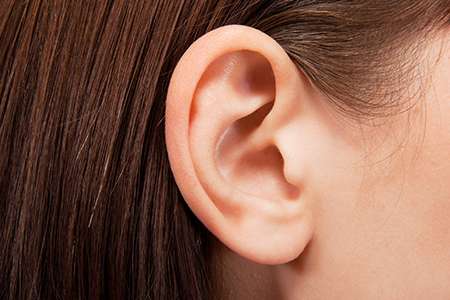Research gives new hope to tinnitus patients

A research project, led by the University of Liverpool and Aintree University Hospital, is giving new hope to patients living with tinnitus.
The condition, which causes one in 10 people in the UK to hear a constant noise in their ears or head, can cause distress to individuals of any age and affect sleep and concentration at work. Tinnitus, for which there is currently no cure, although there are effective management techniques, can lead to anxiety and depression in extreme cases.
How the brain reacts
The University and Aintree have now teamed up to try to gain a better understanding of how the brain reacts in different tinnitus patients.
The study, which is being led by Dr Vanessa Sluming, Senior Lecturer in Neuroimaging Science and Principal Investigator at the University, and Fahad Alhazmi, a PhD student, will investigate brain structure and function in people who have tinnitus and those who don't. The group with tinnitus will be a mix of people who find the condition irritating and those who don't.
A total of 90 volunteers, including patients from Aintree University Hospital, will take part in the study. The volunteers will undergo audiological testing and a functional MRI scan at MARIARC, the University's magnetic resonance image analysis research facility, during which they will be given different audio and visual prompts.
Dr Sluming, from the University's Institute of Translational Medicine, said: "In a room of tinnitus patients, you will find people who live well with the condition and others who struggle to cope, but there has never been a study to understand why this is.
"We want to know if there is a difference in the way their brains are reacting to what they hear as a result of their tinnitus. We can then work with our colleagues at Aintree to develop more targeted therapies which will help those who suffer the most."
New developments
Tony Kay, Head of Audiology Services at Aintree University Hospital, said: "I'm delighted to once again be working with our academic partners at the University. I hope this project will lead to new developments in the way we can help our patients live with tinnitus."
Previous research between Aintree and the University has been shortlisted for a prestigious Marie and Jack Shapiro prize by the British Tinnitus Association, which recognises research that is "most likely to result in improved treatment or awareness of tinnitus.
David Stockdale, Chief Executive of the British Tinnitus Association, said: "We welcome this new research, and hopefully it will lead to improved treatments to reduce the distress that some – but not all – people with tinnitus experience."
















